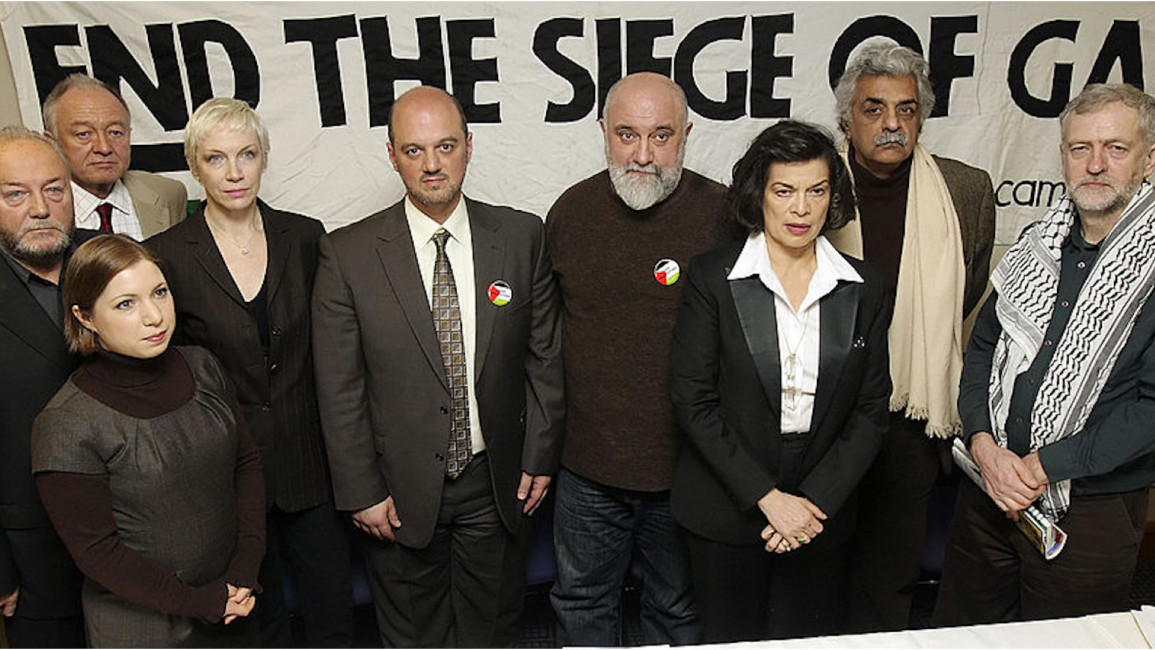De-Jeremy-ising Labour's Israel line, shadow Brexit secretary shuns BDS
As the UK's Labour Party struggles to catch up with the Conservatives' 18-point lead in the polls ahead of June's snap general election, some in the opposition party are attempting to distance themselves from leader Jeremy Corbyn's tough line on Israel.
The Labour Party's new line is said to be an attempt to win voters sympathetic with Israel, and who have been put off by Corbyn's commitment to the Boycott, Divestment and Sanctions (BDS) campaign.
At a general election hustings for the Jewish community in the UK on Sunday, Sir Keir Starmer, Labour's shadow Brexit secretary strongly denied a Labour government would support a boycott of Israel, despite Corbyn's previous suggestions he was in favour of BDS.
"Labour Party policy is against boycotts – I'm against boycotts," said Starmer. "The Labour Party adopts policy as a party and we have a party policy on this and it's absolutely clear."
Starmer may have been referring to the official Labour line contained in its recently leaked manifesto, stressing commitment to "comprehensive peace in the Middle East based on a two-state solution".
That means a secure Israel alongside a secure and viable state of Palestine, the manifesto explained, though it qualified on the issue of settlements. "The expansion of Israeli settlements on the Palestinian West Bank is not only wrong and illegal, but represents a threat to the very viability of the hopes of securing a successful outcome of the peace process."
"We cannot accept the continued humanitarian crisis in the Occupied Palestinian Territories, and we will support Palestinian recognition at the UN".
 |
The Nakba can be traced back to British colonial policy that was sympathetic to the creation of Israel in historic Palestine, under the 1917 Balfour Declaration |  |
On the eve of the Nakba
The shadow Brexit secretary was responding to Conservative Secretary of State Sajid Javid, who at the same event attacked Jeremy Corbyn's support for BDS.
Starmer and Javid were debating issues affecting the Jewish community in Britain, in a panel which also included Liberal Democrat peer Baroness Sarah Ludford and Kirsten Oswald of the Scottish National Party.
Javid quickly hit back. "Keir, I'm afraid it's just not right to say that the Labour Party does not support boycotts of Israel – you are misleading these good people," said Javid.
"Jeremy Corbyn has said when asked about the Boycott, Divestment and Sanctions campaign, and I quote, BDS is part and parcel of a process to be adopted."
Javid added: "When he was asked about it again, [Corbyn] said, and I quote, I believe sanctions against Israel are an appropriate way of promoting the peace process. That's Labour's position, and if Labour were ever near power, they would boycott Israel."
Labour's attitudes on Palestine - whether mainstream or fringe ones - and accusations of anti-Semitism against some of its figures have alienated many in the British Jewish community. A 2016 poll from Survation for the Jewish Chronicle found that just 8.5 percent of British Jews would vote for Labour at a general election.
The conference tackled the Palestinian-Israeli conflict on the eve of the anniversary of the Nakba, the day Palestinians mark as their national catastrophe with the creation of the State of Israel 69 years ago, the anniversary remembered on Monday.
The Nakba led to the expulsion of hundreds of thousands of Palestinians from their homeland, many of whom - and their descendents - remain refugees stranded in Palestine or in other parts of the world to this day.



